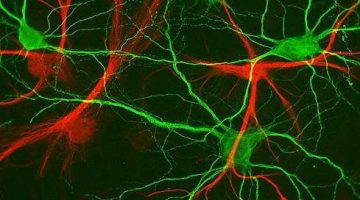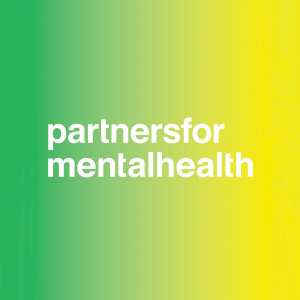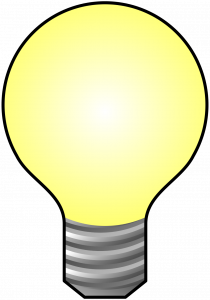
December 2019
www.ninet.med.ubc.ca
PDF version of this newsletter can be found here
Happy Holidays and Happy New Year! This is our 7th newsletter from the NINET Public Advisory Committee (PAC), comprised of members of the public, clinic patients, lab personnel and Dr. Fidel Vila-Rodriguez. We focus on improvements at the clinic, on-going research, and how to improve access to and education about non-invasive neurostimulation therapies for people with mental illness.
The NINET Lab is committed to investigating the most relevant research questions that can translate safely, rapidly, and efficiently into clinical practice. If you have questions, contact us at newsletter.ninetlab@gmail.com. You can also see our newsletter archive.
Patient Centered Research
 Several NINET Lab members and patient partners attended the
Several NINET Lab members and patient partners attended the
Putting Patients First 2019: Working Together Across the
Research Life Cycle conference on November 20, 2019 in Vancouver and were featured in their SPOR-cast on Twitter: https://twitter.com/SPOR_cast !
HOPE: How One Patient Evolves
My name is Lisa Ridgway and I am a patient partner with the NINET Lab.
All the great people that work there, Dr. Fidel Vila-Rodriguez, and I have three things in common. First, we all believe that rTMS works as an effective, non-invasive treatment for many people who have mental illnesses. Second, we believe that the research conducted at the NINET lab must be patient-oriented. Third, we know there is hope for
people with mental illnesses. I became a patient partner with the NINET lab in a random but purposeful way.
I had rTMS in 2017 at the Royal Jubilee Hospital in Victoria. My treatment lasted 40 days over Christmas and New Year. I was one of only few patients to receive rTMS in Victoria before the program was shelved. The rTMS treatment helped me because it was like a single log coming out of a logjam. It opened up a river of hope for me to follow to become well. Fast forward to a random twitter comment, Dr. Vila-Rodriguez (as a clinician and academic researcher) and I (as a patient partner) were linked by that same strong sense of hope.
I am well today because I have hope.
Hope can come in many ways to a person struggling with mental illnesses. A great psychiatrist, like Dr. Wei-Yi Song at Royal Jubilee Hospital, helps a lot as it was Dr. Song who signed me up for rTMS. Supportive family and friends held me close while some others nervously shied away from my illness. I struggled to eat but learned that physical exercise helped my appetite. I hoped for the best, and I was true to a strict drug regime. I developed good sleep habits. I went to the psychiatric day hospital at Royal Jubilee for 9.5 months. Over time and with hard work I have become well.
How does one patient evolve into a patient partner?
I became interested in research about mental illnesses and recovery tools for a simple reason: it is advancing the care and outcomes for people with mental illnesses. I became well because the health care system invested in me, including rTMS treatment. Now I can give back. I am a lawyer by training and now a mental health advocate by design. But other things were accidental, like being in the right place when rTMS was available at my local hospital. Now I collaborate at the NINET lab doing patient-oriented research. A single patient partner and a single academic researcher/clinician alone can’t solve the mysteries of mental illness. But together with the committed people at the NINET lab we move together towards a solid horizon line of hope. We move towards an effective and lasting treatment for mental illness where rTMS is available to everyone, anywhere in British Columbia. A place where people can get well and stay well.
If you also want to become a patient partner with the NINET lab, contact ninet.lab@ubc.ca.
New Research
We are excited about two new research studies in the NINET Lab. Both studies are about repetitive transcranial magnetic stimulation treatment (rTMS) and making treatment more effective for people with mental illness.
Accelerated 8×5
The first study is called Accelerated 8×5. This is an upcoming randomized sham-controlled trial of accelerated rTMS treatments, where all participants will receive either active or sham intermittent theta burst stimulation (iTBS) treatments on the left dorsolateral prefrontal cortex (L-DLPFC) for 8 treatments per day for only five days in total (Monday-Friday).
Pragmatic rTMS
The second upcoming study is the Pragmatic rTMS Study. This research will compare the effectiveness of rTMS results depending on the placement of the stimulation on the participant’s head. We will compare the left dorsolateral prefrontal cortex (L-DLPFC) placement versus placement on the right dorsolateral prefrontal cortex (R-DLPFC), in a pragmatic clinical setting. If you’re interested in participating in either of our new research studies, keep an eye on the NINET website for study eligibility and enrollment criteria.
Life Hacks and Depression
– Jennifer S. with help from anonymous Redditors

Sometimes depression just sucks all the life out of us. Having depression is the equivalent of going through life on extra hard mode. Suddenly you have no energy. You want to sleep all the time. It’s challenging to do even the most basic things. Treatment can take some time to be effective… or maybe your depression is treatment resistant. Either way, we need to find ways to live with depression. Here’s a list of life hacks that other people with major depression find help when the black dogs are at our heels.
- Lock down your sleep schedule.
“I can’t stress enough how much this helped me. Go to sleep and wake up at the same time every day.” Make a personal rule about no naps unless you’re running a fever over 37.8 Celsius (100 Fahrenheit).
- Music Rocks: Put on a song that gets you going.
Then pick one of these options:
-
- Exercise: “I’ve had days where I cried my weight in tears, got pissed that I was crying so much and started lifting weights to some solid music. Eventually, I felt better because my muscles were having a good time.”
- Cleaning: If exercise seems daunting, try option 2: Cleaning. Put on some loud music and clean up your room. It’s likely one of the only things in the world you have complete control over. Picking up laundry counts. Making your bed counts. Unf*ck Your Habitat is a great website if you can’t get started.
- Tiny Micro Goals with Check Boxes! “My depression tends to come on badly when I feel overwhelmed with life. I’ll make a checklist of things I need to get done – sometimes even breaking one task into 3-5 smaller, bite-sized bits. The sense of accomplishment I feel by physically marking them ‘done’ makes me feel better.” Achieving one tiny micro goal can start the snowball effect. A good starting place is to take a shower. Sometimes the simple act of getting out of bed starts the ball rolling and helps interrupt a depressive cycle.
- Bullet journaling helps corral inertia
 too.
too.
When life is particularly bleak, write a list of your morning and evening routines (get out of bed, brush teeth, get dressed…), then check items off one at a time. We had a short piece on bullet journaling in the November newsletter you can read here.
- Five Minute Rule.
“I found the five-minute rule from CBT helpful. I set my phone timer and think ‘I will do 5 minutes of X’. If I’ve had enough or I’m not enjoying it, then I stop when the timer rings with no judgement. I find it helps with cleaning; it’s amazing what you can actually achieve in 5 minutes, but it’s also good for getting into hobbies I have neglected. The key is it doesn’t matter if I find I can’t do more than 5 minutes, at least I had a go.”

- Teach your Pet to Connect with you.
“I taught my dog to high-five me. When I’m upset, he will jump on my lap and give me a very enthusiastic high-five. It ruins my depression every time. No matter how alone or useless I feel, that high-five makes me feel connected. Even if I don’t feel worthy, my dog thinks I’m the greatest person in the world.” For the cat lovers, teach your cat to come on your lap when you click your tongue (or whatever signal your feline master will respond to).
- Practice Saying “Yes!”
“The movie ‘Yes Man’ [2008, starring Jim Carey] is what saved me from depression the first time. After a while of never wanting to do anything I watched the movie and started to say yes to everything.” Also, check out the book, “Hell Yes!” by Elizabeth C. Baskin. Ask yourself if what you need to do is a “hell, yes!”? “This simple question immediately frees me from all the things I think I should do because I don’t stop to think about whether I really want or need to do them.” Figure out what is the next right thing for you. Is it a Hell Yes?! Then, do that. Make it a micro goal and then check the box with a big felt marker! Then ask yourself again, “what is the next right thing for me?” Rinse and repeat, one day at a time.
- Do Something Nice.
Being of service, however small, gets us out of our depressive quagmire if only for a short while. Figure out one small thing you can do to be helpful to someone else. Ask an elderly neighbor if there’s something you could do for them. Volunteer somewhere where you can help on a drop-in, no-pressure basis. Helping other people takes the focus off yourself and how you are feeling. Helping others feels good as well, so it can be a great mental trick to lift your mood, even temporarily.
- Change Shape!
No, not exercise per se, literally change your position. “Sitting stagnant or laying down can make me feel worse. I stand up, take a walk, or move in some way that changes the shape of my body.” Get your blood flowing a bit so you can feel connected to your body.
- Get out (by design!)
Isolation is a close friend to depression. Structure your life so you have to go out on a regular basis if you can. “I get a bit hermit-y so I make tasks for myself so I have to leave the house. I only buy vegetables for a few days so I have to get more, I don’t renew library books so I have to take them back etc.”
- Use Social Media for Good.
“I created an Instagram account under a pseudonym so I could post frequent photos of #seenonmywalk or participate in a #todayiwill challenge. It helps on dark days look back at my posts and realize I haven’t been this depressed forever. It’s a visual record of what I have done that I can look at on a hard day, instead of beating myself up for everything I haven’t done.”
Each of us, no doubt, has had a ton of advice on how to work with depression. Some of it is useful, some of it hurts. On those days when all life hacks in the world don’t give us any traction, these words ring true: “Sometimes, I try to just ‘go’ with my bad days, rather than fight them, because fighting depression is exhausting.” ‘Do what you can, where you are, with what you have’ is probably the best life hack of all.